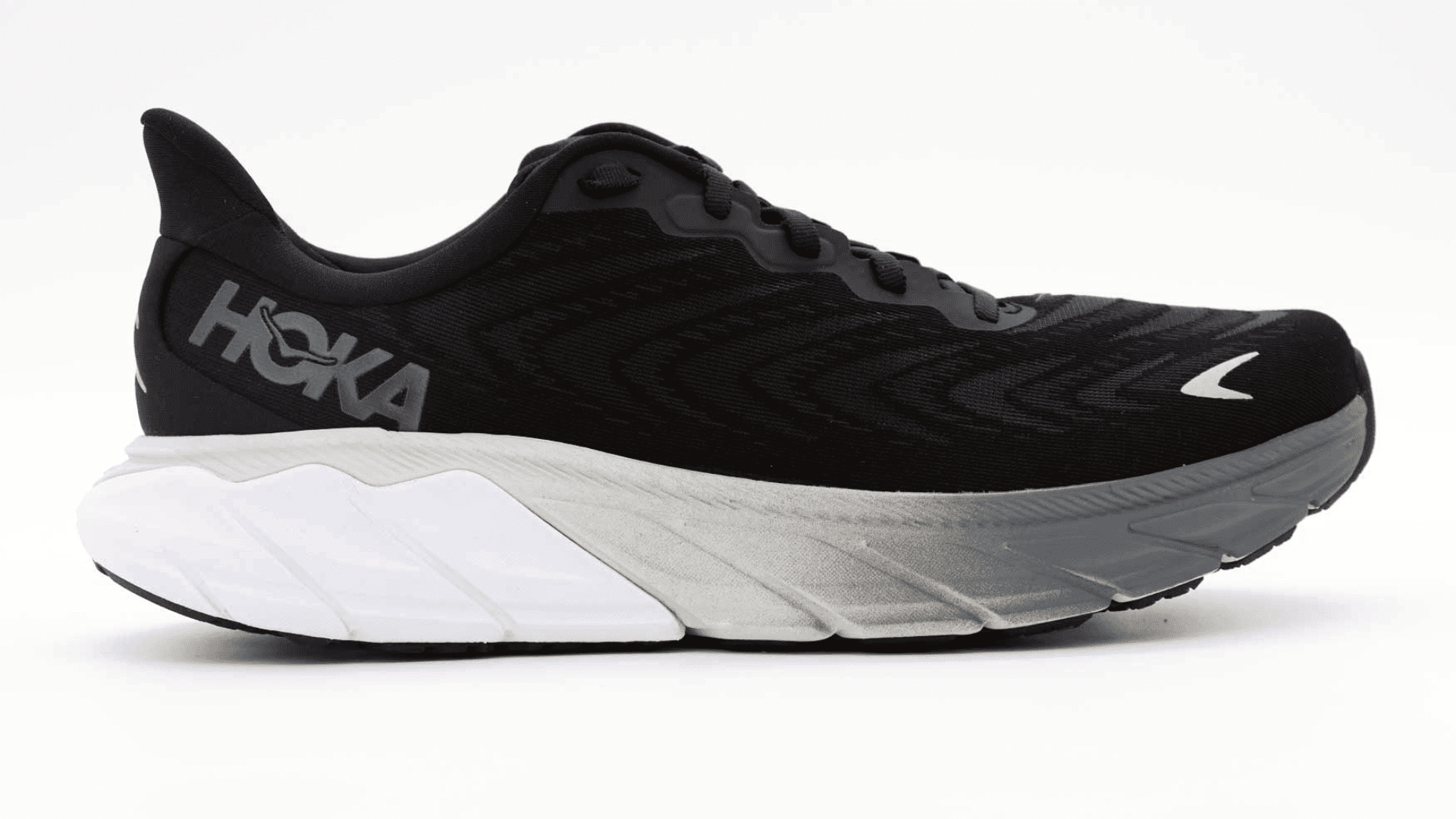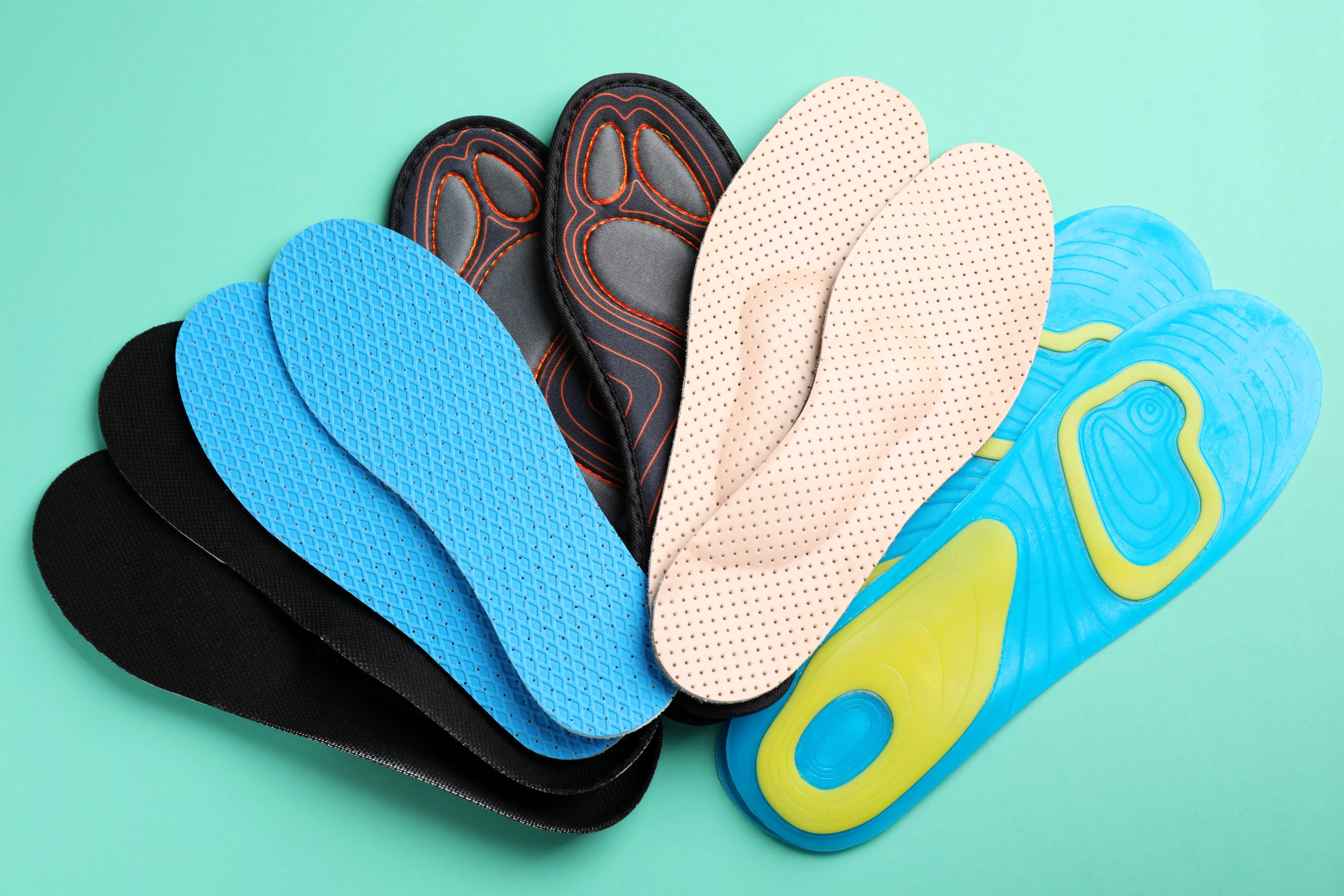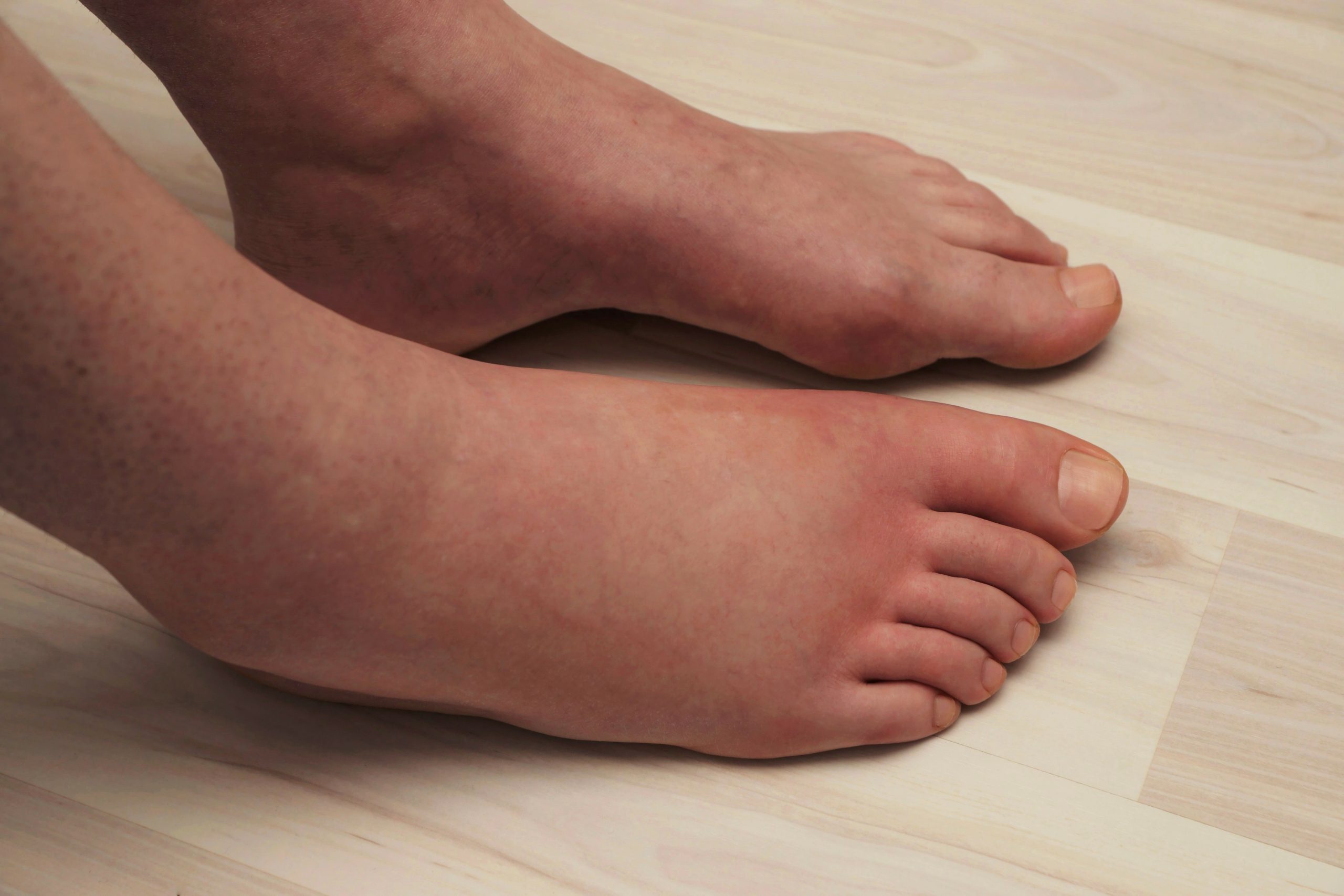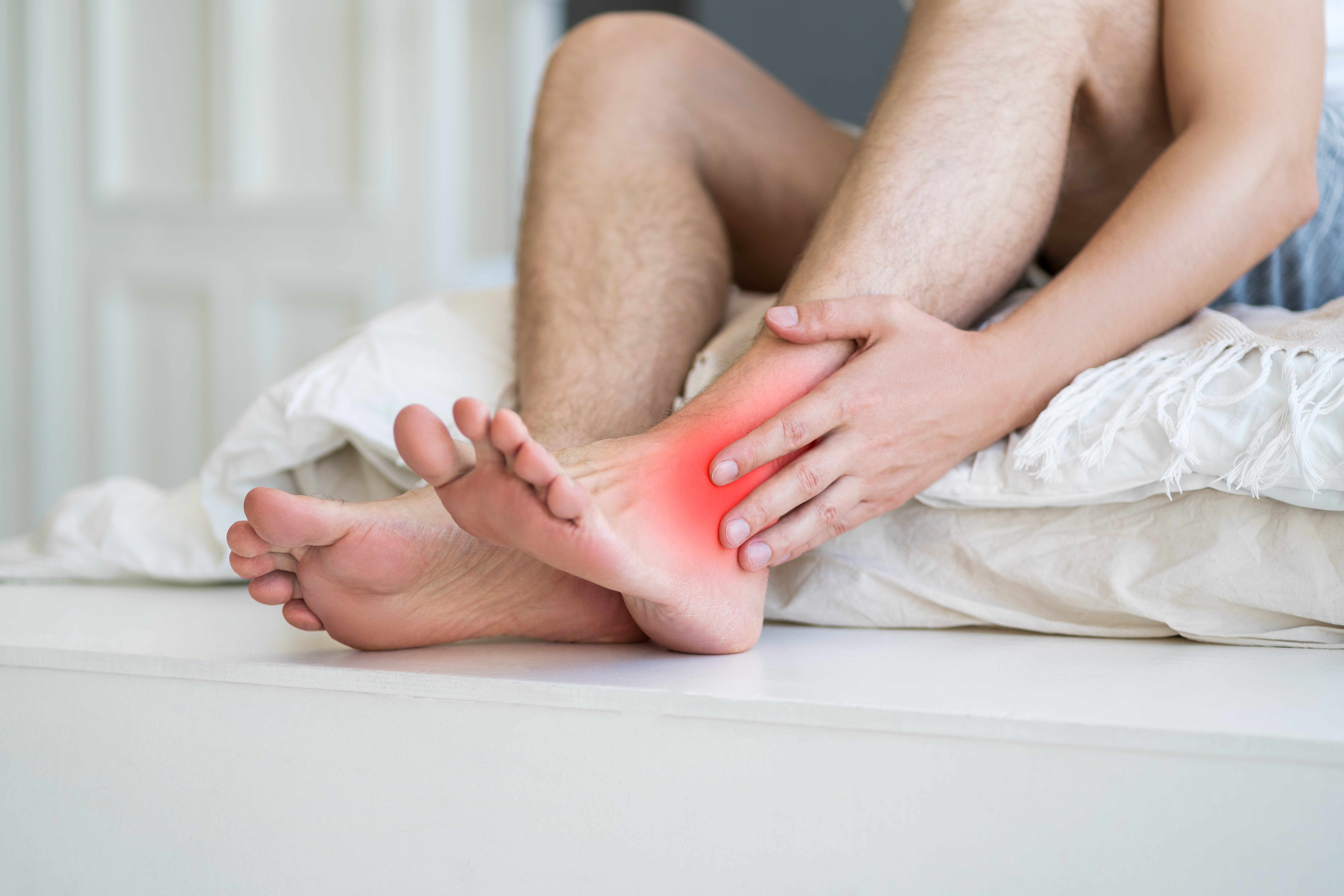
Achilles tendonitis, also known as Achilles pain, is a common condition that affects the Achilles tendon, the large tendon that runs down the back of your lower leg and connects your calf muscle to your heel bone. The pain and inflammation caused by Achilles tendonitis can make it difficult to walk, run, or even stand for long periods of time, and can thus make your day-to-day life quite awkward and uncomfortable.
While rest and physical therapy are important for managing Achilles tendonitis, choosing the right footwear can also play a big role in relieving pain and discomfort. In this blog post, we’ll take a closer look at the causes and symptoms of Achilles tendonitis, and the key features to look for in footwear that can help alleviate the symptoms.
Understanding Achilles tendonitis.
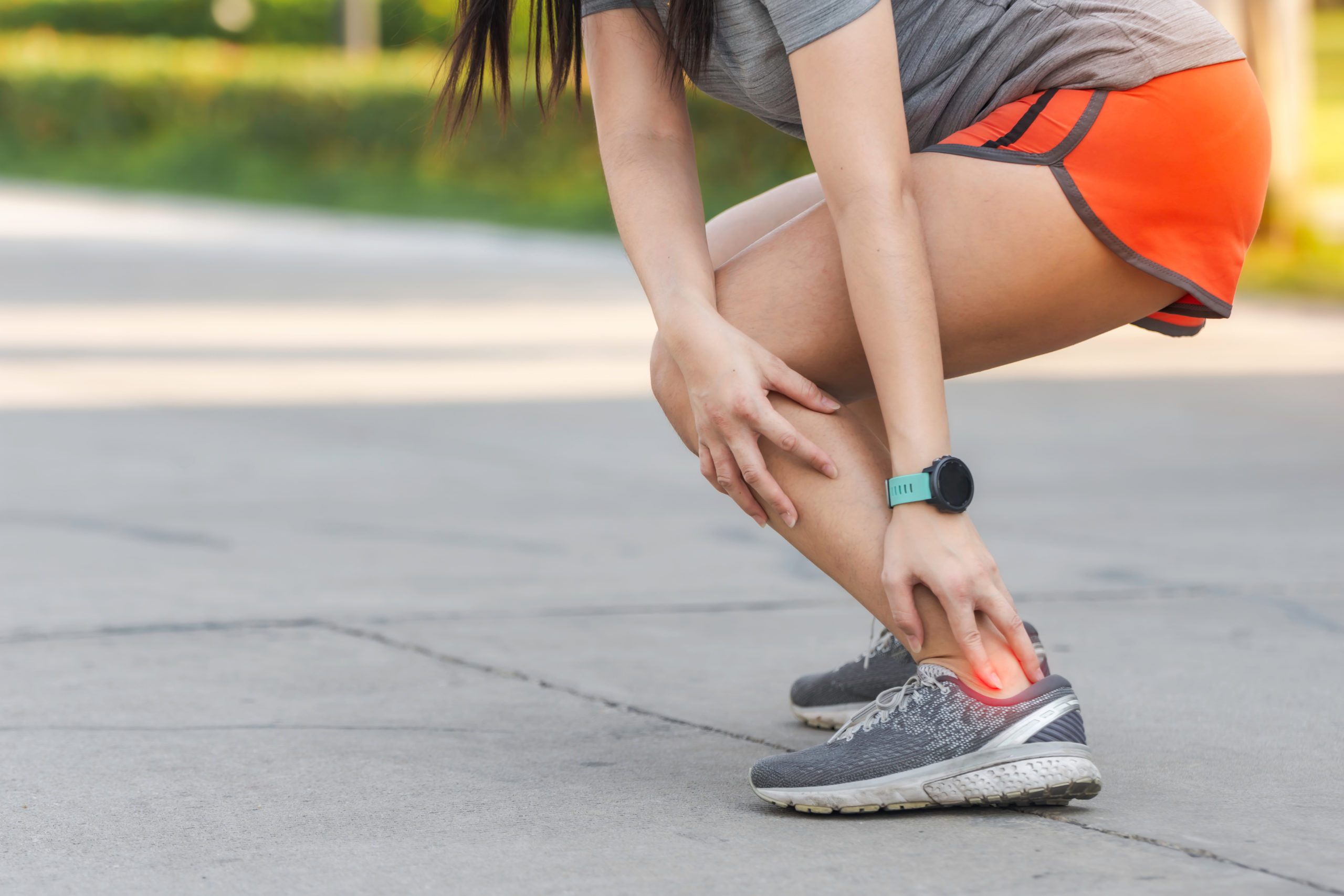
There are several causes of Achilles tendonitis, including overuse, a sudden increase in physical activity, tight calf muscles, and aging. Risk factors for Achilles tendonitis include participating in sports or physical activities that put stress on your feet and ankles, having flat feet or high arches, and having a previous injury to your Achilles tendon.
Symptoms of Achilles tendonitis can include pain and stiffness in the back of your heel, especially when you first wake up in the morning or after sitting for a long period of time. The pain may also be worse after exercising or standing for long periods. The tendon may also feel swollen or tender to the touch, and it can often appear red and inflamed.
It’s important to note that Achilles tendonitis can take a long time to heal, and it’s important to take steps to prevent further injury. Proper footwear and orthotics, stretching and strengthening exercises, and avoiding activities that put stress on the Achilles tendon can all help prevent Achilles tendonitis. If you already suffer with the condition, those things can also help you manage the symptoms.
For advice on Achilles tendonitis, you should always consult your podiatrist. A podiatrist can assess your feet, correctly diagnose any foot-health conditions you may have, and can also give you the best course of action and treatment plan to help you recover.
The importance of wearing the correct footwear.
Footwear plays a big role when it comes to managing Achilles tendonitis. Not only will footwear help ease your symptoms, it will also play a crucial part in the recovery process. Ultimately, the goal of footwear is to create a stable environment for your feet to relax in a neutral position, and to do this the shoes need to have certain features to be considered stable and supportive enough. Shoes that are too soft, too unstable, or do not have midfoot support will not give your Achilles tendon a chance to recover.
"...So, how do I find good shoes?"
To make it easier, you can follow the same principle checklist we use when we decide what to stock on our website. There are basic components that go into the construction of footwear that you should look for as a minimum – without them the shoes will probably add to your problems, rather than help them.
Heel Counter.
The heel counter is the part of a shoe that is responsible for rearfoot stability. Without a heel counter, a shoe cannot really give you much support. The back will not be sturdy enough, and it will not provide a stable enough environment for your feet. To check if a shoe has a heel counter, press firmly at the back of the shoe. If you are able to easily fold the back of the shoe, it does not have a heel counter. Now, imagine your feet in that shoe every time you walk!
Midfoot Stability.
Good shoes will have a fairly robust design to withstand the rigours of walking. Our entire bodyweight is put through our feet, so shoes need to have solid structure to be up to the challenge. A shoe with solid midfoot structure will help create the stable environment we spoke about earlier. To check if a shoe has good midfoot support, hold it in both your hands and try to twist it. If it twists very easily, again, it’s not going to offer much support for your feet. Put it back!
Arch Support.
Shoes need to have a decent amount of arch support so your feet can remain in a neutral position, which is essential when managing Achilles tendonitis. Your feet need to be in a neutral position so they can relax and recover, which cannot happen if the shoes do not have enough support.
Cushioning.
Cushioning is needed to help ease the impact put through our feet every day by walking and standing, and will contribute to a feeling of overall comfort. Too much cushioning will have a negative effect however, especially if a shoe does not have the other structural components we have already mentioned. Try to prioritise those first, as wearing a shoe just because of how cushioned it feels will not necessarily help with your condition.
Wearing shoes with proper structure can greatly aid in managing symptoms of Achilles Tendonitis. A shoe with a solid heel counter, firm midsole, and good arch support will provide a stable base for your feet, distributing weight evenly and reducing stress on the tendon. This can help to prevent further inflammation and twisting of the ankle.
Which footwear brands can help with Achilles tendonitis?
When it comes to brands that can help with Achilles tendonitis, there are several options available. Here are a few of the best brands to consider that feature the features that we have just spoke about.
HOKA.
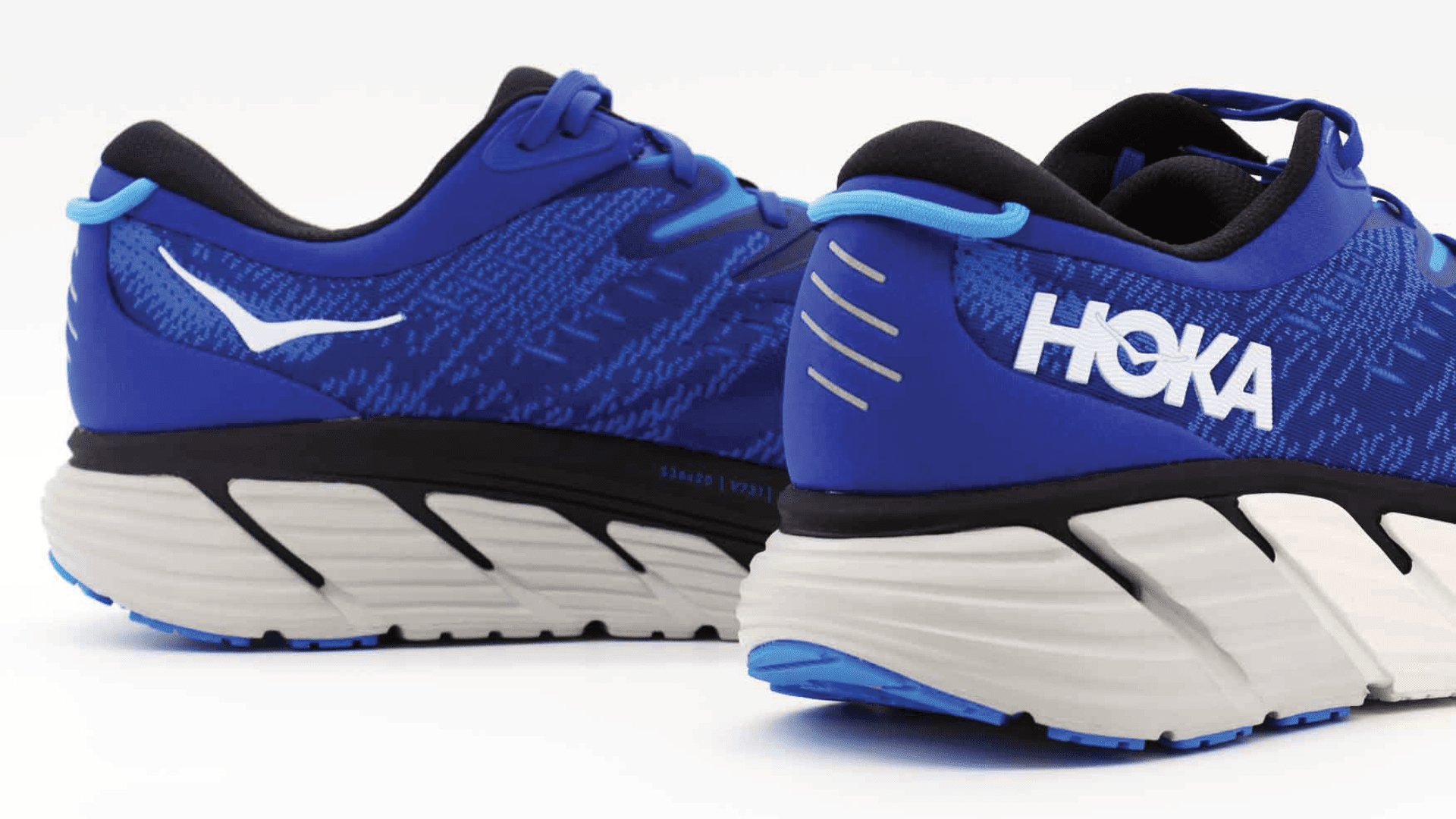
HOKA is a well-known brand that makes athletic style footwear primarily for runners, though we have found them to be an excellent problem-solver for Achilles tendon related issues, as they tick all of our boxes in terms of structure and support. Each style we stock has a firm heel counter, great midfoot support, and more than enough stability thanks to the wider and flatter outsole. Specific styles like Gaviota 5 also have a bit more arch support if you need it.
As they are running trainers, they also have meta rocker technology which can help offload forefoot pressure and put your feet in a more neutral position, whilst encouraging natural foot movement. Overall, HOKA are the perfect balance of support, weight, and cushioning.
Asics.
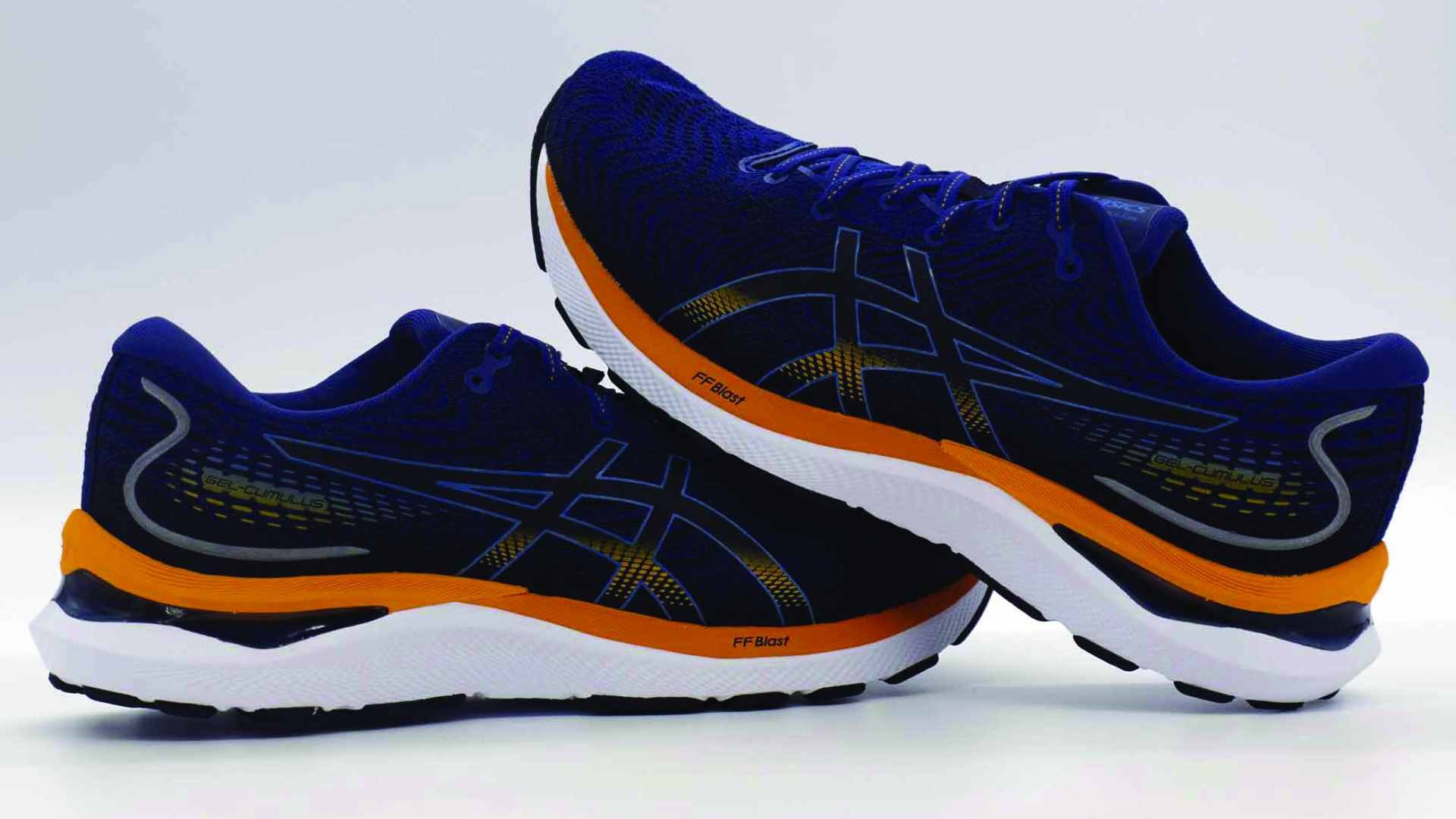
Asics is another brand to consider. The styles we stock at ShoeFit.uk have proven to be an excellent choice for those with Achilles tendonitis, as they keep your feet stable thanks to their solid, well-made construction. They also feature a deep and wide toe box that provides plenty of room for your toes to spread out and function correctly. Not to mention, our Asics trainers all feature the gel cushioning system, which can help to ease painful pressure points in your feet. Like with HOKA, we do also have some Asics styles that offer more arch support, such as the Gel-Kayano series.
Xsensible.
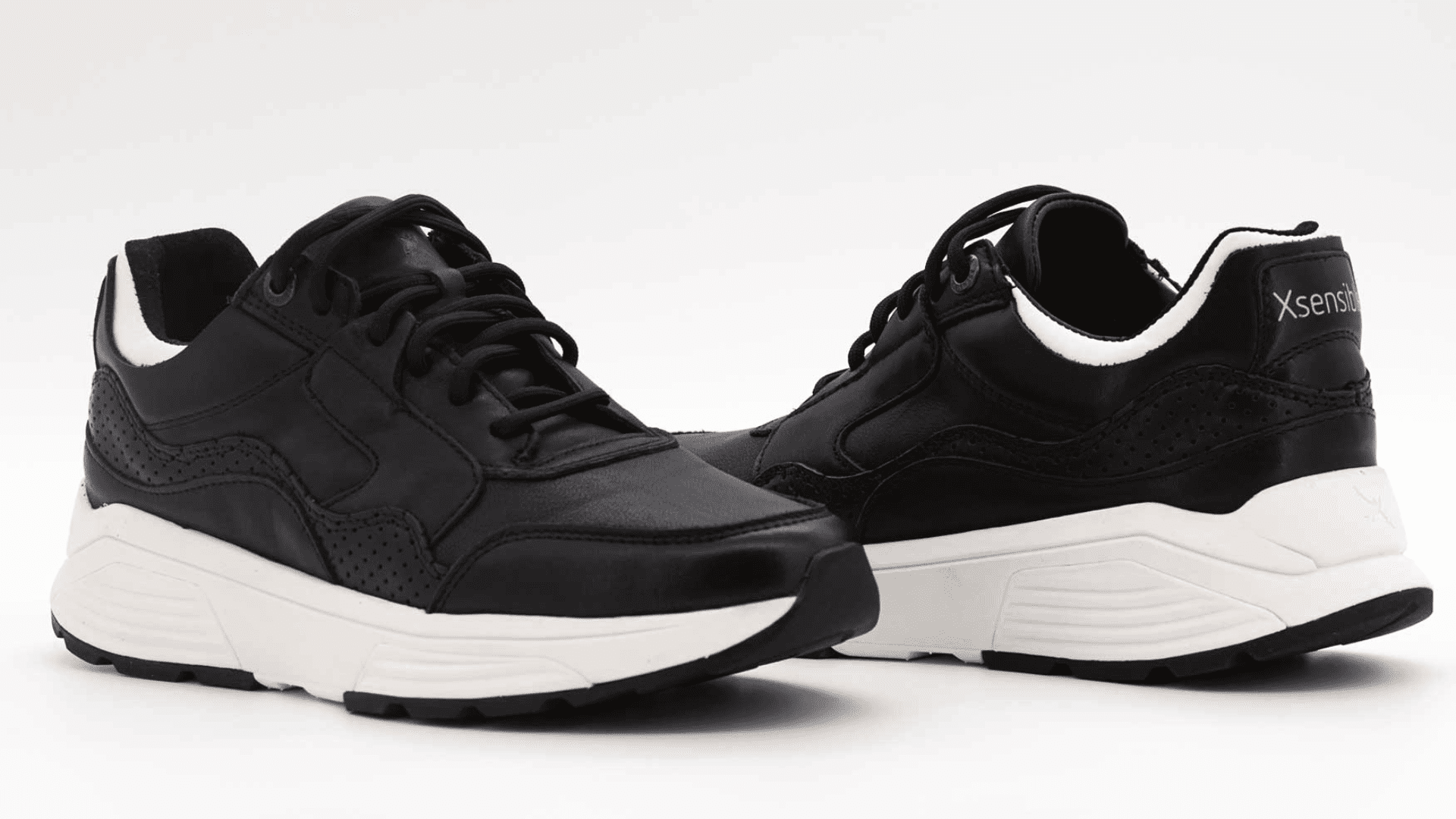
Xsensible is a fashion-focused brand that offers a range of shoes that are not only stylish, but also provide excellent structure and support. They’re inspired by traditional balance technology, and promise an optimal walking experience while contributing to better posture, thanks to the rocker sole design. The shoes are a great combination of balance, stability, and cushioning. Stretch walker styles feature a unique stretch leather upper, which gives your feet all the room they need to relax and function correctly, without compromising the overall fit.
It’s worth noting that the best brand for you will depend on your individual needs and preferences, which is why we offer a free video call service. You can book a call now and chat with a member of our team, who will be able to walk you through some personalised suggestions based on your unique needs. They’re free, easy to do, and there’s no obligation to buy! You can book a call by clicking here.
When should I see a podiatrist?
If you suspect that you may have Achilles tendonitis or another foot condition, it’s important to consult a podiatrist. A podiatrist is a medical professional who specialises in the diagnosis and treatment of foot and ankle conditions. They will be able to assess your feet, take a detailed history of your symptoms, and give an accurate diagnosis.
Based on the diagnosis, they will be able to develop a personalised treatment plan tailored to your specific needs. This may include a combination of rest, physiotherapy, exercises, shoe inserts (orthotics), and medication. In some cases, the podiatrist may refer you to a specialist for further assessment and treatment. By seeking the advice of a podiatrist, you can ensure that you receive the best possible care for your foot condition and reduce the risk of complications and chronic pain.
Tips and tricks.
When it comes to managing the pain and discomfort caused by Achilles tendonitis, the right footwear can make all the difference. To help you find the perfect pair of shoes, here are the main things to take away from this blog.
- Look for shoes with good structure and support. Check for components such as a heel counter to make sure they’re supportive enough.
- Avoid high heels and opt for shoes with a low or flat heel.
- Make sure your shoes fit! If your shoes are too small or too big, you’ll cause more problems for yourself – especially if you’re already suffering with an underlying health condition.
- Always consult a podiatrist for accurate, personalised advice.
- Remember, we have an entire collection of shoes that can help with Achilles pain.
- If you need extra help, book a free personal shopping appointment!
Final thoughts.
Achilles tendonitis can cause huge amounts of daily discomfort, and can make everyday activities a painful experience. However, good footwear can help to make your symptoms more manageable. The correct shoes can both ease pain, and assist with the recovery of your damaged Achilles tendon. Remember, for professional advice on tendonitis you should always consult a podiatrist for an accurate diagnosis and the best course of treatment for you.
If you’re ready to start shopping for shoes, check out our collection of shoes that can help alleviate Achilles pain. If you need some help choosing, or would like some personalised recommendations from a trained shoe fitter, then do not hesitate to book a free online video call with us, and we’ll be happy to help you find the perfect pair of shoes for your feet.




